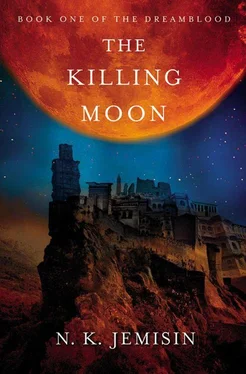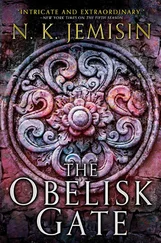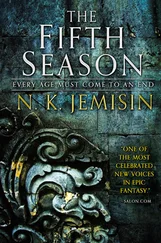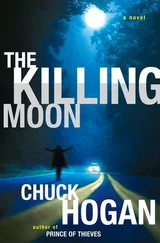So. At the beginning of time—
Yes, yes, I must begin with that greater story. I tell this in the Sua way, first the greater stories, then the lesser, because that is how it must be done. That was our bargain, yes? I will speak, and pass my tales on to you since I have no sons or daughters to keep them for me. When I finish speaking, you may summon my brethren, and I will go gladly to Hananja. So.
At the beginning of time the Sun was a swaggering oaf. He strutted about the heavens proclaiming his greatness day and night, heedless of the hardships he caused to the world below: rivers dying, deserts born, mountaintops burned ugly and bare. He shone himself brightly so that the two Moon Sisters would admire him and grant him their favor.
Waking Moon was a small and homely thing who rarely strayed far from her sister’s shadow, fearful of being alone. She permitted the Sun her pleasures and he continued swaggering about, more certain than ever of his greatness.
But Dreaming Moon was full and beautiful. She loved the dark places and the cool nights, and sometimes she would gaze down into the ocean to paint her face with four bands of color: red for blood, white for seed, yellow for ichor, and black for bile. She felt no pressing need for a lover, and she found Sun’s behavior offensive, so she scorned his attempts to court her.
Sun grew mad with longing for her, and even Waking Moon could not distract him from his lust. He sought solace in smaller, younger Stars, who would sometimes bend themselves to him, but at last his desire became too great even for that. He fell to the earth and masturbated, and when his climax came the earth tore and the heavens split and a great white spear of his seed flew forth and struck Dreaming Moon. Where the earth opened, plants and beasts emerged and began to spread across the land. Where the Dreamer was struck, gods came forth and began to spread across the heavens.
In a fury at this great insult, Dreaming Moon declared that if Sun could not control himself, she would control him. So she demanded that he bring her gifts to make amends and food to feed the children he had so carelessly spawned. She confined him to the day, where he could swagger as much as he wished and no longer annoy her with his foolishness. She forbade him ever to lie upon the earth again, lest his lustful inclinations lead to more chaos. Meekly he submitted to these restrictions, for she was powerful with magic and he desired her still, and if this was the only way she would have him, then so it must be.
Now they live apart as husband and wife, she in the night and he in the day. Always he longs for her, and the days shorten and lengthen as he strains to rise earlier, set later, all for a chance to glimpse her. With time she has grown fond of him, for he has been humble and well-behaved since their marriage. Every so often, she rises early so he can gaze upon her. Once in a great while she lets him catch up to her, and he darkens his face to please her, and they join in careful lovemaking. And sometimes in the night when he cannot see her, she misses his foolish antics and pines for him, and darkens her own face. She is always bright again when he returns.
Give Hananja peace and She shall dream peace and so return peace upon the dreamer. Give Her fear or suffering and She shall dream these, and return the same. Thus is peace made law. That which threatens peace is corruption. War is the greatest of evils.
(Law)
There was magic in Gujaareh.
So the Protectors had warned all Kisua. Yet Sunandi’s master Kinja Seh Kalabsha had required her to study Gujaareen magic as part of her apprenticeship, though it made the elders shake their heads and the sonha nobles sigh. Kinja had been adamant, however. Magic was mother’s milk to the people of Gujaareh. They were steeped in its necessity, proud of its benefits, dismissive of its consequences. It was impossible to understand Gujaareh without understanding the source of its power.
And so Sunandi had learned. Gujaareen magic centered around the powers of healing, which the Hetawa—the governing temple of the Hananjan faith—controlled. But though the Hananjan priests served as gatekeepers for the magic, they were not its source. The people of Gujaareh made the magic, in the wild bursts of imagination and emotion called dreams; the Hananjans simply harvested that wildness and refined it into a purer, usable form. And so Gujaareen citizens brought their nightmares and nonsense dreams to the temples, where the priests called Sharers used them to shrink tumors or speed the healing of wounds. Sometimes a different kind of healing was needed, perhaps to regrow a severed limb or end a disease passed down through the lineage. Then Hananja’s whores would go forth—no, Sunandi chided herself. Dangerous even to think with the usual Kisuati scorn while within Gujaareh’s borders. Hananja’s Sisters, they were called, though a handful were males in female garb; more Gujaareen strangeness. In solemn rites the Sisters would coax forth the most carnal dreams from Her supplicants, and those too would be given to the Sharers for the good of all.
And for those citizens of Gujaareh who were too old, or too sick, or too selfish to bring their offerings to the Hetawa… there were the priests called Gatherers.
Oh yes, there was magic in Gujaareh. Great, reeking heaps of it.
“You’re afraid,” observed the Prince.
Sunandi blinked out of her reverie to find him smiling at her, unapologetic. It was the Gujaareen way to speak of such things—desires that should remain private, concealed anxieties. He knew it was not the Kisuati way.
“You hide it well,” he continued, “but it shows. Mostly in your silence. You’ve been so forceful up until now that the change is striking. Or is it that you find me a poor conversationalist?”
If only Kinja had not died, Sunandi thought behind the mask of her answering smile. He had understood the peculiarities and contradictions of Gujaareh better than anyone else in Kisua. In this land flowers bloomed at night and the river created lush farmlands in the heart of a desert. Here politics was half religion and half riddle, for under Hananja’s Law even a hint of corruption was punishable by death. And here Sunandi had discovered that even Kinja could make mistakes, for though he had taught her the language and the magic and the customs, he had not been a woman. He had never been forced to contend with the most elegant, most dangerous charms of Gujaareh’s Sunset Prince.
“I’m forceful when force is needed,” Sunandi replied. She waved a hand: a touch of unconcern, a hint of coquetry. “Trade discussions with the zhinha most definitely require it. I was under the impression, however, that this meeting between us was…” She pretended to grope for the word in Gujaareen although she suspected that he, unlike most of his countrymen, would not be so easily lulled by her accent and feigned ignorance. “How do you say it? Less official. More… intimate.”
“Oh, it is.” His gaze followed her every movement; the smile had not left his face.
She inclined her head. “Then here I may be more myself. If you read fear in my silence, I assure you that it has nothing to do with you.” She smiled to soften the snub. His eyes flared with a mingling of amusement and interest, as they always seemed to do when she parried his verbal feints. Small wonder he found her so alluring; to Sunandi’s mind, Gujaareen women were painfully demure.
The Prince abruptly rose from his couch and sauntered over to the terrace railing. For a moment Sunandi set aside subtlety to drink her fill of the sight unobserved—though there was hardly any need to conceal her interest. The Prince’s movements were studied, the epitome of grace; he knew full well she was watching. The black ropes of his hair had been threaded with cylinders of gold and strings of minute pearls, and this mane surrounded a face that was fine-planed and flawless, apart from the misfortune of his coloring. Ageless, like his lean warrior’s body. Here in his private quarters he’d shunned the more elaborate collars and adornments of his office for a simple loinskirt and feathered waistcloak. The plumes of the cloak whispered as they swept the floor’s tiles behind him.
Читать дальше












